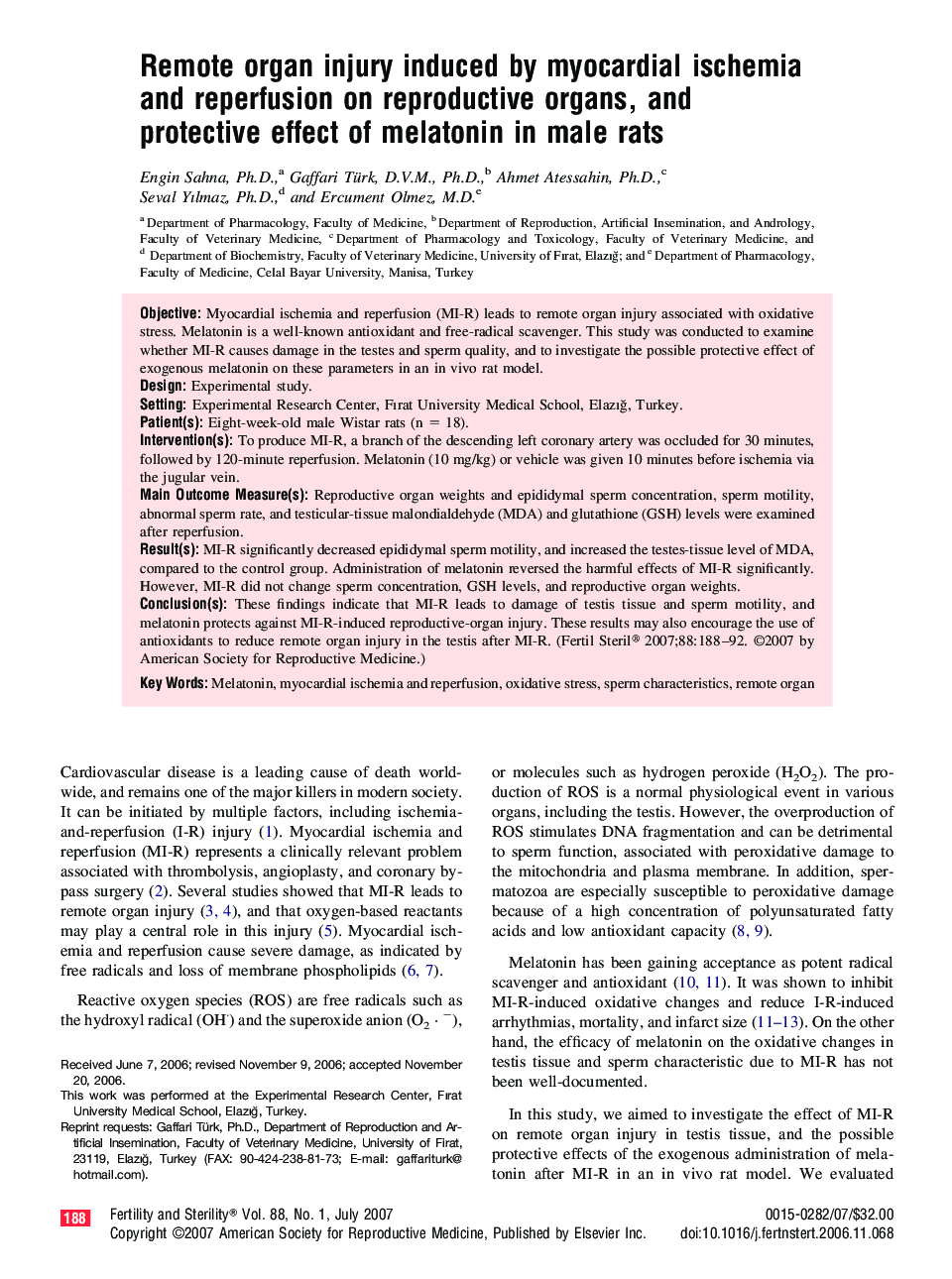| Article ID | Journal | Published Year | Pages | File Type |
|---|---|---|---|---|
| 3935685 | Fertility and Sterility | 2007 | 5 Pages |
ObjectiveMyocardial ischemia and reperfusion (MI-R) leads to remote organ injury associated with oxidative stress. Melatonin is a well-known antioxidant and free-radical scavenger. This study was conducted to examine whether MI-R causes damage in the testes and sperm quality, and to investigate the possible protective effect of exogenous melatonin on these parameters in an in vivo rat model.DesignExperimental study.SettingExperimental Research Center, Fırat University Medical School, Elazığ, Turkey.Patient(s)Eight-week-old male Wistar rats (n = 18).Intervention(s)To produce MI-R, a branch of the descending left coronary artery was occluded for 30 minutes, followed by 120-minute reperfusion. Melatonin (10 mg/kg) or vehicle was given 10 minutes before ischemia via the jugular vein.Main Outcome Measure(s)Reproductive organ weights and epididymal sperm concentration, sperm motility, abnormal sperm rate, and testicular-tissue malondialdehyde (MDA) and glutathione (GSH) levels were examined after reperfusion.Result(s)MI-R significantly decreased epididymal sperm motility, and increased the testes-tissue level of MDA, compared to the control group. Administration of melatonin reversed the harmful effects of MI-R significantly. However, MI-R did not change sperm concentration, GSH levels, and reproductive organ weights.Conclusion(s)These findings indicate that MI-R leads to damage of testis tissue and sperm motility, and melatonin protects against MI-R-induced reproductive-organ injury. These results may also encourage the use of antioxidants to reduce remote organ injury in the testis after MI-R.
